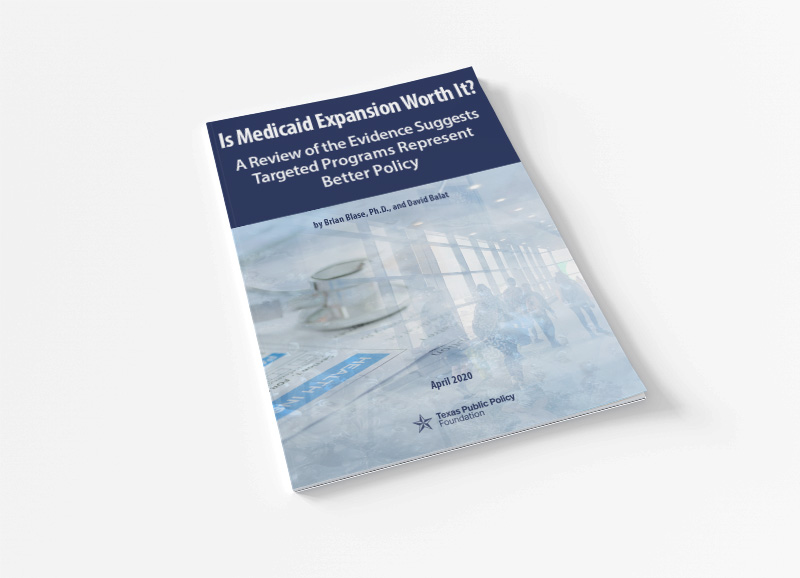Targeted initiatives focused on vulnerable patients and children prove to be far better public investments than does a broad-based Medicaid expansion, according to a new paper by Brian Blase and David Balat for the Texas Public Policy Foundation.
Their detailed review of academic studies and state experience shows the most cost-effective way to use public resources to improve health is through targeted initiatives focused on individuals who are most likely to benefit from health care and medication, especially through investments in child health.
They write that large coverage expansions disappoint for several reasons: 1) the uninsured receive nearly 80 percent as much care as similar insured people, 2) private coverage is replaced by Medicaid for many, and 3) it leads to indirect but significant adverse effects on access to care such as longer wait times.
“The ACA significantly expanded health insurance coverage between 2013 and 2017, but Americans’ health worsened during this period as life expectancy declined for three consecutive years from 2014 to 2017,” Blase and Balat write.
Perhaps surprisingly, they find that “states that did not adopt Medicaid expansion had favorable mortality trends from 2013 to 2017 compared with states that adopted the expansion, in part because they had fewer people die from opioid overdoses.”
Their research also showed that Medicaid expansion was associated with improvements in self-reported health and greater financial peace of mind, with mixed evidence on physical health benefits, and some studies find it was associated with a decline in mortality for those near retirement age. “Health programs geared toward lower-income children had a substantially positive rate of return but that the return was negative for health programs broadly targeted at lower-income adults,” they write.
“Additionally, programs that focus aid on providers that care for lower-income populations are almost certainly a better public investment than programs aimed at boosting coverage.”
As a caution for policymakers: “Ultimately, the enormous outlays of economic resources plowed into Medicaid expansion likely could have been used in a variety of ways to better improve the economic well-being and health of Americans.”
Read the full paper here:

